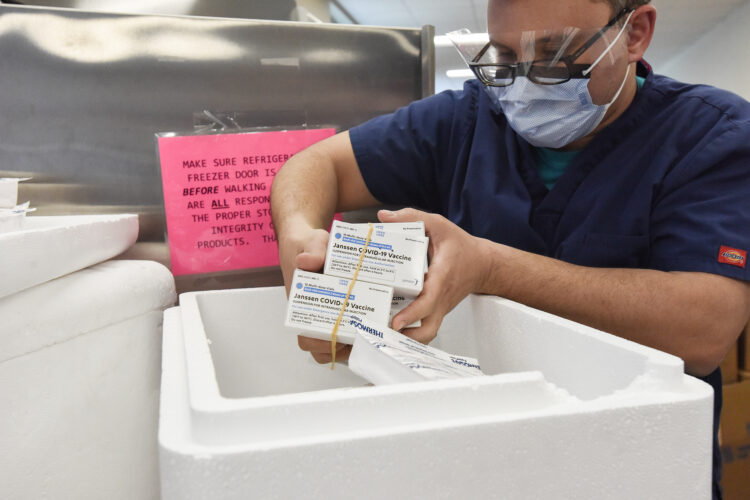
Johnson & Johnson vaccine arrived at Atrium Health March 8
March 9. By Dave Yochum. With Black people dying because of the coronavirus at about two times the rate of white people, it turns out North Carolina is among the best-performing U.S. states when it comes to distributing vaccines evenly among Black and white residents.
About 11 percent of North Carolina’s Black population has received at least one shot, compared with 17 percent of the state’s white residents. Nationally 5.7 percent having received at least one dose of the vaccine.
According to a Bloomberg report, North Carolina is one of the best-performing states due to a “laser focus” on collecting demographic data.
How vaccinations have been distributed has highlighted tensions between rural and urban America, as well as line-jumpers who’ve gotten vaccines ahead of those most at risk.
Data driven
Dr. Mandy Cohen, secretary of the North Carolina Department of Health and Human Services, said every provider must use the state’s vaccine management system, which requires demographic data to finish registering someone for a shot. That has helped the state track its progress and target certain populations more effectively, Cohen said.

Dr. Mandy Cohen NCDHHS secretary
“The data is not just a nice-to-have, it’s a need-to-have in order to embed equity into every aspect of our response and now into vaccine operations,” says Cohen. Equitable distribution is crucial as communities of color have borne a disproportionate share of the suffering during the crisis.
Of 1.5 million first doses administered, 77 percent have gone to whites, who account for 71 percent of the total population. Black people have received 16 percent of the shots even though they represent 22 percent of the population, and one-quarter of the state’s Covid-19 deaths broken down by race. Three percent of the shots have been administered to Hispanic people, who make up 10 percent of the state’s population and more than 20 percent of its coronavirus cases by ethnicity.





